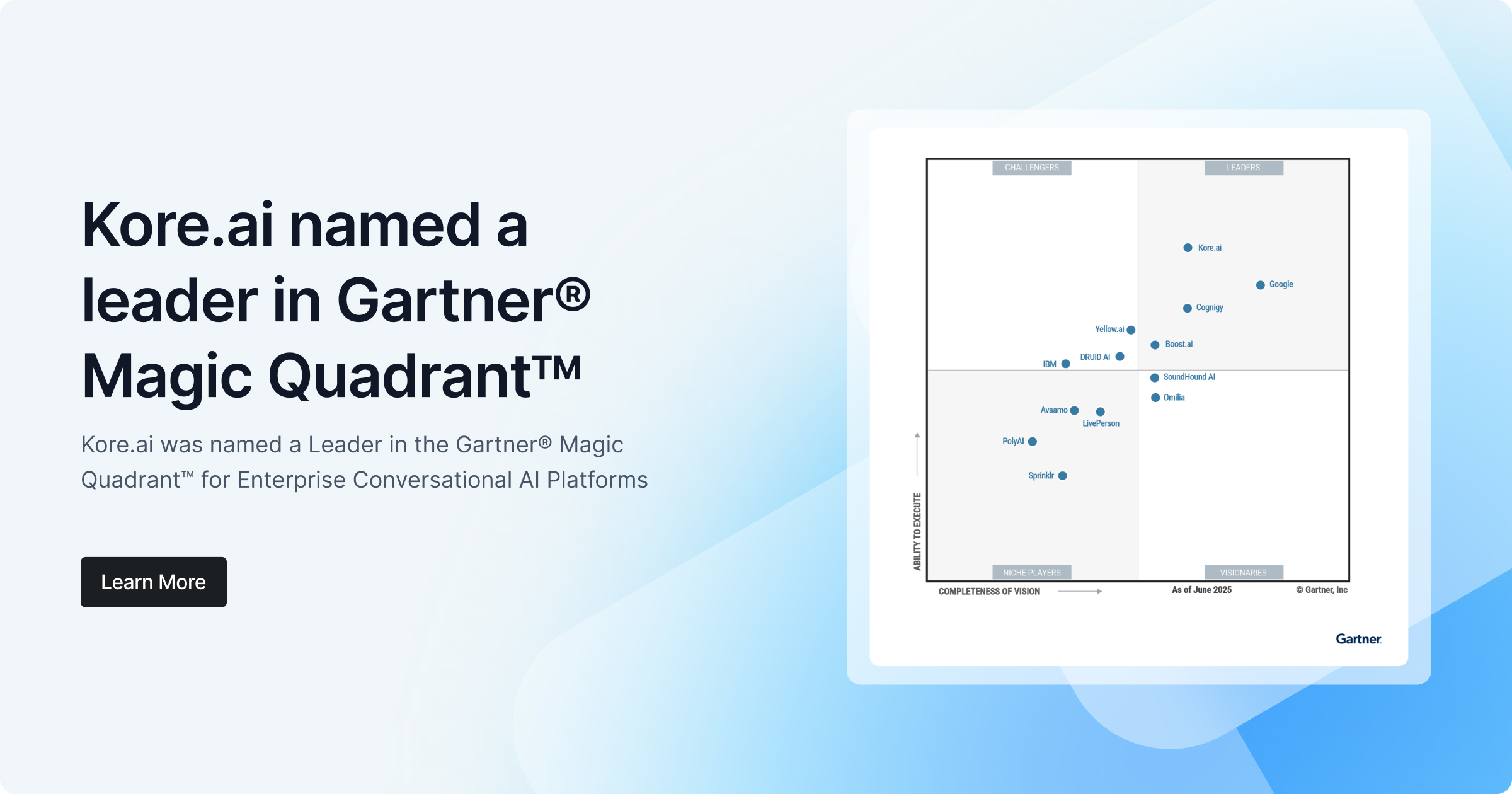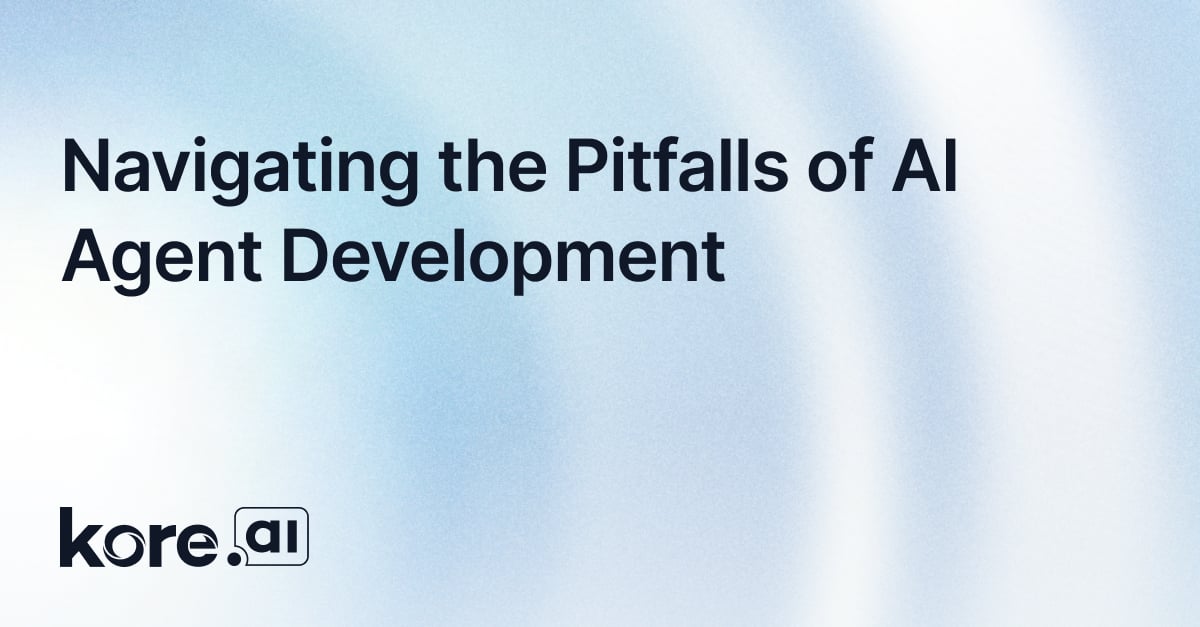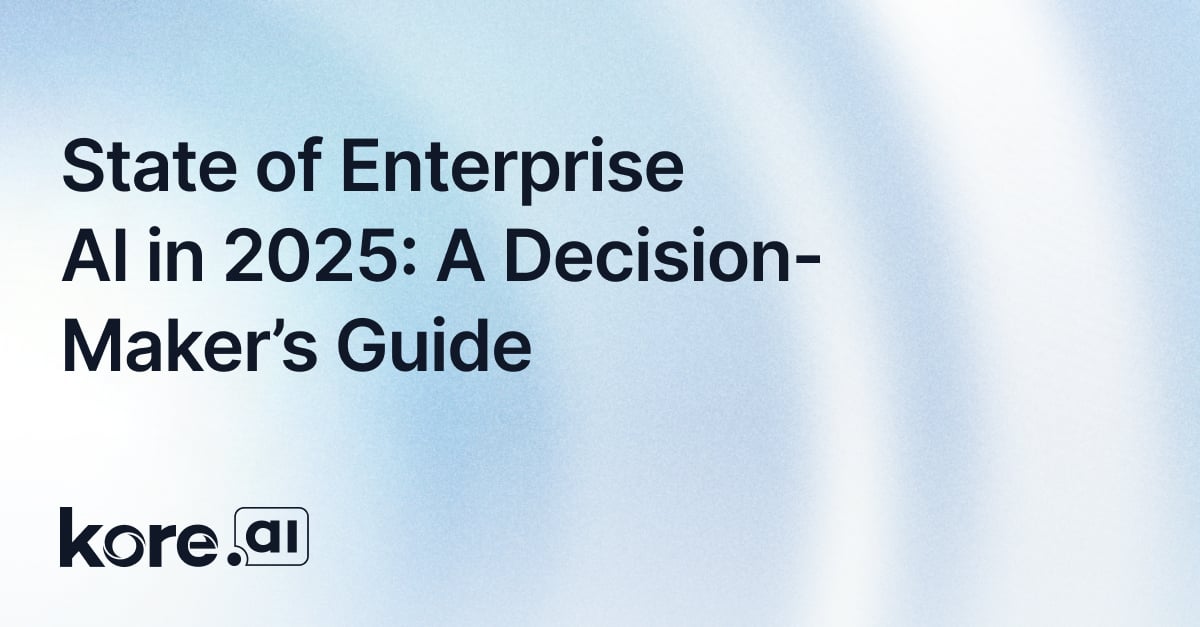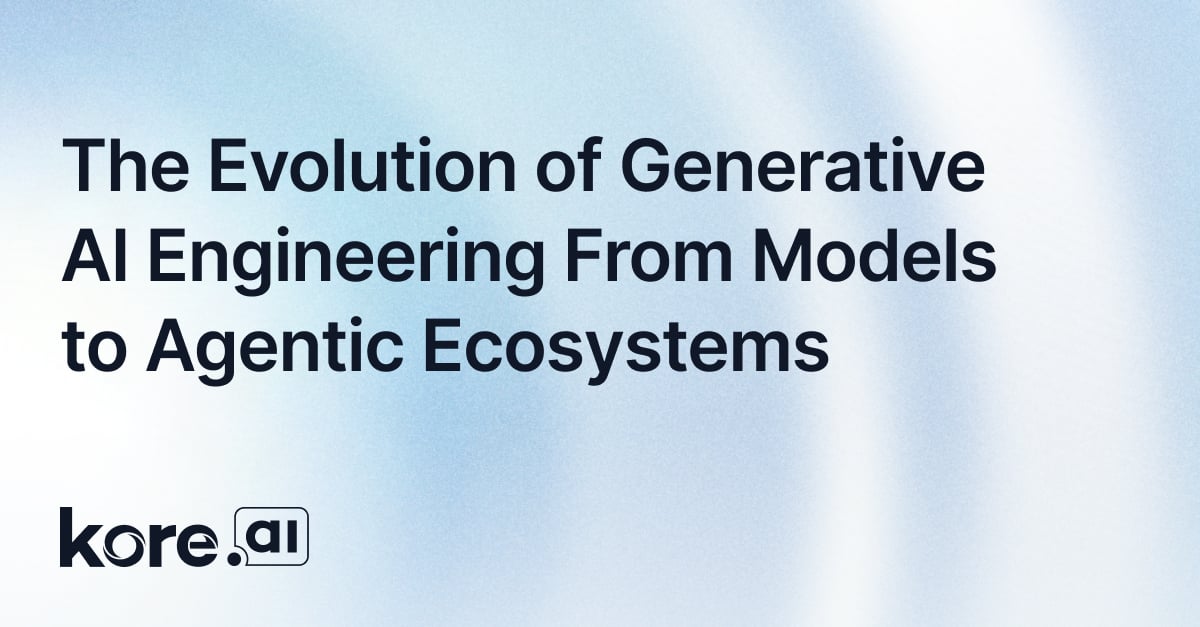Not a day passes without Generative AI (Gen AI) advancements being spotlighted for their industry-transforming potential. Since emerging onto the global scene in 2023, organizations in 2024 have actively deployed and leveraged Gen AI to achieve significant business benefits.
This year, Gen AI has moved beyond being a novelty; it's become a pivotal tool shaping operational strategies and driving enhanced business outcomes. According to the latest McKinsey Global Survey on AI, 65% organizations have integrated Gen AI into their day-to-day operations. This surge is no coincidence; it's fueled by the potential of Generative AI (Gen AI) to personalize, optimize, and drive innovation on an unprecedented scale.
In this second part of our series on How Generative AI is Reshaping Global Industries, we delve deep into how Gen AI is revolutionizing three key sectors: Telecommunications, Travel, and High-Tech. Join us as we explore the captivating ways Gen AI is propelling these industries towards a smarter, more interconnected future.
(If you missed it, check out our first installment where we covered the retail, healthcare, and finance sectors.)
Let’s dive in!
Generative AI in Telecom
While 2023 introduced the world to generative artificial intelligence (Gen AI), 2024 is witnessing service providers (CSPs) bring their Gen AI proofs of concept to the market. Gartner forecasts that by 2028, automation and advanced tech changes will phase out about 70% of the skills CSP workers rely on. This is a call to action for the industry to invest in technologies like generative AI. Regardless of how telcos begin to approach generative AI, the most important thing is to experiment and explore now.
AI for customer service in telecom, Gen AI isn't just a trend—it's rewriting the rules of customer interaction.
From eliminating hold times to delivering personalized responses, it's setting a new standard for service excellence. The industry is rapidly adopting AI to enhance customer experiences, streamline processes, boost productivity, and optimize network operations. Generative AI is proving to be a valuable asset across various aspects of the telecom value chain.
NVIDIA's survey on the State of AI in Telecommunications shows that 57% of telecom companies are using Gen AI to improve customer service and support, and the same percentage is leveraging it to boost employee productivity.
Additionally, 48% are utilizing it for network operations and management, 40% for network planning and design, and 32% for creating marketing content.
What's truly groundbreaking is how this technology partnership revolutionized internal processes. From prediction to connection, let us delve into how Gen AI is transforming customer service in telecoms.
Redefining Customer Support:
Effective customer support and brand loyalty hinge on seamless interactions, with advanced technologies playing a key role in enhancing experiences, reducing churn, and boosting brand perception.
Leading telecom companies are integrating conversational AI for customer service alongside traditional call center operations to exceed customer expectations. This integration empowers AI to automate responses to text messages, monitor calls in real-time with voice-to-text transcription capabilities, and promptly identify resources or solutions. Furthermore, AI enables call auditing to analyze customer sentiment, pinpoint issues, ensure compliance, and enhance agent performance.
For instance, a global telecom leader recently introduced a transformative initiative utilizing advanced Generative AI technologies. They deployed a versatile virtual assistant operational around the clock in multiple languages to swiftly address customer queries across diverse topics. Powered by generative AI, this initiative aims to streamline customer support processes and enhance service standards. Through collaborative efforts with technology partners, substantial improvements were achieved in journey testing and gap analysis methodologies. For example, AI-driven innovations reduced journey testing turnaround times by 99%, significantly expediting deployment and ensuring thorough content scrutiny. Generative AI's ability to generate relevant responses and predict customer needs in real-time refined service offerings and bolstered overall customer satisfaction.
Recommended Read on AI for Customer Service: Enhancing Food Ordering with Conversational AI and Generative AI
Personalized Customer Experiences:
Telecom thrives on uninterrupted high-quality service, but unsatisfied customers lead to churn. Telcos must predict subscriber behavior and enhance customer satisfaction to foster greater loyalty. This tailored approach not only enhances customer satisfaction but also builds greater loyalty by addressing specific needs and preferences.
Recently, a prominent US telecom company introduced a suite of human-assisted GenAI applications aimed at revolutionizing customer service operations. Among these innovations is a sophisticated tool designed to predict customer needs and seamlessly connect them with the most suitable customer care representatives. This proactive approach not only streamlines customer interactions but also significantly boosts retention rates. By leveraging advanced AI capabilities in this manner, the company aims to not just meet but exceed customer expectations, ensuring sustained loyalty and satisfaction in an increasingly competitive market.
Content Creation and Management
Content creation in telecom is all about setting trends that resonate with customers. With telecom services constantly evolving, the pressure to deliver timely and impactful content is higher than ever. Generative AI is paving the way for more efficient content creation and management. It gives you the ability to instantly create a wide range of content, from social media posts to comprehensive technical guides. Gen AI tools can effortlessly generate automated user guides and support documentation, ensuring consistency and freeing up your team for more strategic endeavors.
AI for Customer Service - Personalization is no longer a luxury; it’s a necessity.
With Gen AI, tailoring content to individual customer preferences becomes a breeze. By analyzing customer data, AI can craft personalized messages and offers that resonate deeply with your audience based on their usage patterns and preferences, driving engagement and boosting customer loyalty. Generative AI excels at real-time content updates, ensuring that your websites and customer communications always reflect the latest information on plans, services, and promotions. This not only lightens the load for your content managers but also minimizes the risk of outdated information slipping through the cracks.
In addition, Gen AI’s capability to manage multilingual content seamlessly also ensures consistent global communication, bridging cultural differences effectively. This ensures consistent, culturally aware communication across regions, helping you connect with telecom companies in connecting with global audiences while respecting local nuances.
Optimizing Network Performance:
In telecom, staying ahead means more than just reacting to problems—it's about anticipating and solving them before they even arise. That’s where optimizing network performance with generative AI comes into play. Imagine having a system that doesn’t just identify potential bottlenecks and irregularities in real-time but also predicts future network conditions and suggests the best solutions. By leveraging cutting-edge generative AI technologies, telecom companies can proactively monitor their networks, ensuring seamless service delivery and building trust and satisfaction among customers who rely on uninterrupted connectivity.
Proactively managing network performance with generative AI isn’t just about keeping things running smoothly—it’s about making customers happy. People expect uninterrupted service and quick fixes for any technical hiccups. Generative AI lets telecom companies simulate different network scenarios and develop strategies to tackle issues before they become problems. This shows reliability and responsiveness, which are crucial for keeping loyal customers in such a competitive market.
But it’s not just about customer satisfaction. Optimizing network performance with generative AI-driven insights helps achieve broader business goals. It cuts down on the costs associated with reactive maintenance and allows for better resource allocation by predicting and optimizing network capacity needs. This approach not only boosts service reliability but also positions telecom providers as leaders in delivering high-quality, dependable connectivity solutions. Staying ahead of network challenges with proactive generative AI strategies means telecom companies can enhance operational efficiency, build stronger customer relationships, and maintain a competitive edge in the ever-changing telecom landscape.
Integrating Generative AI into network optimization efforts can revolutionize how telecom companies deliver services. It ensures they not only meet but exceed customer expectations while reaping significant operational benefits. So, the next time you enjoy smooth, uninterrupted service, remember—it’s generative AI working behind the scenes to keep you connected.
Recommended Read: How Large Language Models are Shaping the Retail Landscape
Generative AI in Travel
Travel has always evolved with new technologies shaping our journeys. In the 50s, the jet engine revolutionized travel times, and in the 90s, the dot com boom allowed travelers to plan and book trips online. Today, we're seeing a new era of digitally empowered travel, where Artificial Intelligence (AI), especially generative AI (gen AI), is prompting travel companies to rethink how they engage with travelers, innovate their services, and streamline operations.
More on AI Powered Travel Management
By 2032, the Gen AI market is projected to reach USD 3,581.95 million. Further, the travel sector is forecasted to grow at an average of 5.8% a year through 2032!
(Source: Precedence Research)
What does AI powered travel management mean for travelers?
In simple terms, it means vacations can now be uniquely tailored.
Generative AI ensures that every aspect, from choosing flights to booking hotels, perfectly matches individual preferences, fundamentally transforming how we experience global exploration. With this technology, your trips can now include everything you love, customized to perfection.
Let's explore how this AI powered travel management works!
Enhanced Personalization
Travel planning has come a long way. Not too long ago, it meant flipping through thick travel brochures, making endless calls to travel agencies, and standing in line at ticket counters with maps and traveler’s checks. Now, Generative AI has transformed this process by analyzing vast amounts of data—your travel history, online searches, and social media interactions.
This thorough analysis allows Generative AI to offer personalized travel recommendations tailored precisely to your preferences. For adventure seekers, it might suggest hidden hiking trails or eco-friendly accommodations that you might not have found on your own. It goes beyond convenience; it’s about AI powered travel management that feels uniquely crafted just for you.
Take, for example, a leading travel platform in the Asia-Pacific region. They’ve recently introduced an AI-powered chatbot that integrates Natural Language Processing to provide real-time assistance to travelers. By tapping into the travel company's extensive knowledge base, processing documents, flight schedules, and travel plans, the generative AI-powered bot is able to offer specific responses tailored to each traveler's queries about flights, hotels, transportation, or tours. Whether you need advice on booking a flight or recommendations for local attractions, this AI chatbot delivers instant, personalized suggestions to enhance your travel experience.
Operational Efficiency
Managing travel logistics—such as ticketing, check-in, and baggage handling—can often feel overwhelming. However, Gen AI is revolutionizing these processes, significantly enhancing their efficiency. AI tools predict peak times, optimize staff schedules, and proactively tackle issues, resulting in fewer delays and a smoother overall travel experience. It’s like having a dedicated team working behind the scenes to ensure every aspect of your journey runs seamlessly.
Gen AI systems accurately forecast busy periods and adjust staffing levels accordingly. By preemptively addressing potential bottlenecks at check-in counters and baggage claim areas, these technologies minimize wait times and streamline the entire travel process. This proactive approach not only improves operational efficiency but also reduces traveler stress, ensuring a more enjoyable journey from start to finish.
AI Powered Travel Management
A US based major airline supported by Kore.ai technology exemplifies this transformation by automating flight booking, ticketing, boarding, and cancellations, shifting away from traditional agent-based models to intelligent virtual assistants. Their goal is to phase out live agents entirely by automating all frontline tasks, resulting in significantly improved customer satisfaction.
Responsive Customer Service
We’ve all been there—needing help with rebooking a flight or finding local attractions. When it comes to travel, responsive customer service can make or break your experience. Generative AI chatbots are transforming this aspect by offering immediate and precise assistance tailored to each traveler's preferences and needs. These chatbots handle diverse requests in real-time, from rebooking flights to suggesting local attractions, leveraging deep insights from customer data and behavior.
Imagine you're traveling abroad and need to change your flight due to unforeseen circumstances. Instead of navigating through a maze of options on the airline’s website or waiting endlessly on hold, you can simply message a Generative AI-powered chatbot. It quickly understands your request, checks for available options, and guides you through the rebooking process—all within seconds. This instant and efficient assistance not only saves time but also reduces the stress of last-minute changes, ensuring a smoother travel experience overall.
AI powered travel managementgoes beyond reactive assistance; it enables proactive personalization throughout the travel journey. By analyzing customer preferences, past travel behavior, and real-time data, Generative AI for customer service can offer personalized travel recommendations, optimize in-flight services, and even tailor loyalty rewards. Whether it's suggesting destinations based on your interests or enhancing your in-flight experience with personalized services, Generative AI enhances customer satisfaction by delivering tailored experiences that resonate on a personal level.
For example, a leading online travel and lifestyle booking platform in Southeast Asia has adopted Kore.ai's XO Platform to enhance customer interactions on their MobileApp. The focus is on facilitating transactions and providing FAQ support for hotel and flight bookings in Bahasa Indonesia, Thai, Vietnamese, and English languages through button-based interactions without NLP. This solution aims to handle 50-60% of calls at the bot level, reducing the need for live agent involvement.
In essence, Generative AI for customer service not only meets but anticipates traveler needs, setting a new standard for personalized and efficient service in the travel industry. It combines the convenience of AI automation with the empathy and personalization of human interaction, ensuring travelers receive the best possible support whenever and wherever they need it.
Recommended Read:
Tackling Theft with Virtual Assistants powered by Generative AI
High-Tech: Leading the Charge in Innovation
Generative AI (Gen AI) presents an opportunity for companies, promising transformative impacts on innovation, growth, and productivity. In the high-tech sector, Gen AI thrives as a catalyst for innovation, making once-fantastical solutions a reality. The excitement is substantiated by McKinsey's findings, which suggest that generative AI could contribute between $2.6 trillion to $4.4 trillion annually in economic value. High-tech enterprises are actively positioning themselves to harness this substantial potential. For instance, an online marketplace that connects millions of buyers and sellers globally has implemented Generative AI. This integration has empowered them to efficiently handle 56% of incoming chats over digital channels.
Let's delve into the specifics of how this transformation is taking shape.
Streamlining Research and Development:
Generative AI, or Gen AI, is revolutionizing Research and Development (R&D) within the high-tech industry. This cutting-edge technology integrates advanced artificial intelligence and machine learning capabilities to streamline innovation processes. By automating complex tasks and enhancing data analysis, Gen AI empowers high-tech companies to accelerate product development cycles and bring sophisticated technologies to market faster than ever before. This transformative approach not only boosts efficiency but also fuels continuous breakthroughs in areas such as software development, hardware optimization, and futuristic technologies.
High-tech enterprises leverage Gen AI to optimize the design and development of products. Advanced algorithms meticulously analyze consumer preferences, market dynamics, and performance metrics to generate actionable insights that drive the creation of highly personalized products. This customer-centric approach not only elevates satisfaction levels but also bolsters market competitiveness by delivering bespoke solutions tailored to diverse user requirements. Furthermore, Gen AI facilitates iterative testing and refinement of prototypes, ensuring that final products are not only innovative but also finely tuned for optimal performance and functionality. By harnessing the transformative capabilities of Gen AI, high-tech companies innovate more effectively, spearheading groundbreaking advancements that propel the industry towards new frontiers of technological excellence.
Customized Solutions
According to Accenture, 97% of high-tech companies anticipate that generative AI will have a transformative impact. This shift is particularly evident in the industry's increasing adoption of customized solutions tailored precisely to individual customer needs through Generative AI. By leveraging advanced technologies, these companies can meticulously adjust their products to meet specific requirements, thereby enhancing market competitiveness and boosting customer satisfaction.
For example, leading global tech companies are revolutionizing their workforce support services using Generative AI. By analyzing email intents and sentiments, Generative AI categorizes inquiries for HR and IT support needs, swiftly providing appropriate responses or initiating ticket resolutions. This process streamlines service fulfillment, ensuring efficient handling of employee queries while maintaining clear communication about status updates or next steps. This proactive approach not only enhances operational efficiency but also improves employee satisfaction by offering personalized and timely support.
Enhanced Cybersecurity
In today's high-tech world, cybersecurity stands as the bedrock of business resilience. Leading the charge are innovators leveraging AI to revolutionize threat management. Rather than merely reacting, these pioneers predict and proactively neutralize threats. Through rigorous analysis of extensive data, they identify anomalies and suspicious behaviors, preempting potential cyber attacks. Continuously monitoring network activities enables swift detection and immediate mitigation, reinforcing security and instilling confidence among stakeholders that their data remains safeguarded by cutting-edge technology.
What sets these AI-driven solutions apart is their capacity for evolution. Each cyber incident serves as a learning experience, empowering systems to adapt and strengthen defenses against emerging threats. This agility is crucial in today's ever-changing cybersecurity landscape, where threats grow increasingly complex and widespread.
By embedding intelligent AI into their cybersecurity frameworks, forward-thinking enterprises not only enhance threat detection and response capabilities but also demonstrate a steadfast commitment to preserving trust and reliability.This transformation isn't just about defending against current threats—it's about preparing for the challenges of tomorrow, ensuring businesses can thrive securely in an interconnected future.
Predictive Analytics or Code/Content Generation
In the high-tech industry, the adoption of Generative AI is ushering in a new era of innovation and efficiency. Predictive analytics, powered by Generative AI, has emerged as a game-changer, enabling companies to harness vast amounts of data to forecast trends, optimize operations, and make informed strategic decisions. By leveraging advanced algorithms and machine learning models, high-tech firms can anticipate market shifts, customer behaviors, and operational bottlenecks with unprecedented accuracy, thereby gaining a competitive edge.
Moreover, Generative AI is revolutionizing code and content generation in the high-tech sector. Automating complex tasks such as code writing, content creation, and technical documentation not only accelerates production but also ensures consistency and quality. Whether it's generating software code, crafting marketing materials, or producing technical documents, Generative AI streamlines workflows and reduces manual effort, allowing teams to focus on higher-value strategic initiatives.
From Vision to Reality
By 2027, over half of all AI models used by enterprises will be custom-built to meet industry-specific needs, a significant leap from the small percentage in 2023 (Gartner).
No wonder Gen AI is poised to be one of the fastest-growing technology categories we’ve ever seen!
Today, we find ourselves on the threshold of remarkable change and innovation. Gen AI isn't just pushing technology forward; it's fundamentally reshaping how industries operate and innovate. Its impact extends far beyond our current understanding, touching every facet of our lives from education to entertainment and beyond.
According to forecasts from Forrester, the outlook for generative AI is exceptionally promising, with an expected average annual growth rate of 36% through 2030. Meanwhile, Gartner paints an equally optimistic picture, predicting a significant increase in enterprise adoption of Gen AI APIs and applications—from less than 5% in 2023 to over 80% by 2026.
These projections highlight the rapid and widespread influence of Gen AI across global markets.
One thing is clear: Gen AI isn't just a passing trend; it's a transformative force with profound and lasting implications for industries, economies, and societies worldwide.
As boundaries blur and new opportunities emerge, let's embrace the potential of Generative AI—towards a future where innovation knows no bounds!
Conclusion
As we’ve seen across telecom, travel, and high-tech industries, Generative AI is not just enhancing business operations—it’s redefining what’s possible. From streamlining customer support and delivering hyper-personalized experiences to accelerating innovation and securing digital ecosystems, GenAI is becoming the cornerstone of enterprise transformation. As adoption scales and capabilities evolve, one thing is clear: organizations that embrace GenAI today will lead tomorrow’s market. The future isn’t just digital—it’s generative.
Planning your Gen AI Journey?
We’ve got you covered!
Talk to an Expert!









